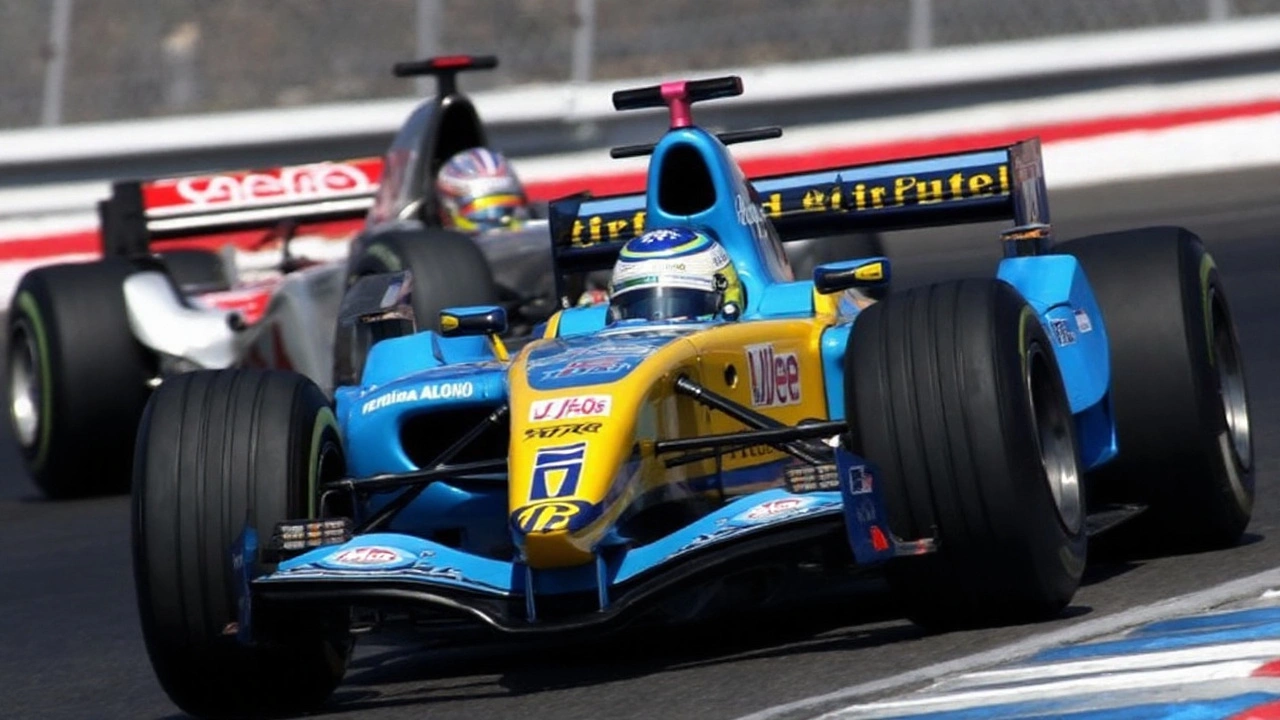A fintech logo on a brand-new Formula 1 car says a lot about where the sport is headed. From 2026, Audi’s works team will hit the grid as the Revolut Audi F1 Team, after the two companies revealed a title partnership aimed at blending top-tier racing with modern, digital-first finance. The agreement, announced July 30, 2025, aligns a manufacturer entering under fresh technical rules with a platform used by tens of millions worldwide.
Revolut, which says it has more than 60 million customers globally, is positioning itself at the heart of the team’s operations and fan experience. Audi, meanwhile, is using its Formula 1 program as a showcase for engineering and sustainability under the 2026 power unit regulations. The financial terms weren’t disclosed, but the scope is clear: branding, payments, operations, and a push to build a new fan culture around the team.
What the deal covers
The partnership goes beyond a logo on the sidepod. Revolut Business will be woven into the team’s financial backbone, handling global needs that are anything but simple in F1—multi-currency payments across a 24-race calendar, supplier settlements, and travel flows that never stop. The aim is to speed up how the team moves money and manages costs from the factory to the paddock.
On the fan side, the plan is to build new digital touchpoints for race weekends. Expect a mix of app-based experiences, priority access for Revolut customers, and smoother merch buying. The team says Revolut will power checkout for official gear, with an emphasis on quick, frictionless payments both online and at the track. Think mobile-first transactions, instant receipts, and less time in line when you’d rather be watching pit stops.
Gernot Döllner, CEO of AUDI AG and Chairman of the Board of Sauber Motorsport AG, called the deal a strategic fit for Audi’s F1 launch, saying the program is designed as a technologically relevant and economically sustainable investment. He framed the partnership as a way to reach new audiences and build genuine excitement for the brand.
Team principal Jonathan Wheatley described the alliance as engineered to challenge motorsport conventions. From 2026, he said, digital solutions from Revolut will support key operational areas while reshaping how fans engage with the team—whether you’re in the grandstands, watching at home, or following on your phone.
The team itself takes shape through Audi’s acquisition of Sauber, with the power unit built by Audi Formula Racing GmbH in Neuburg an der Donau, Germany. Sauber’s Hinwil base in Switzerland becomes the works team’s chassis hub. That keeps a proven F1 factory and wind tunnel in play, now married to a brand-new German power unit program built for the next rules cycle.

Why 2026 changes the game
Formula 1’s 2026 regulations are designed to reset the competitive order. The power units will deliver a bigger electric component and run on advanced, fully sustainable fuels. There’s also a tighter cost framework for engine development and a broader push to improve efficiency. Those changes are tailor-made for a company like Audi, which wants the road relevance and the global stage, but within rules that reward efficiency and innovation.
For Audi, building a works team around its own engine is a big strategic leap. It lets the company control the full package—power unit, chassis integration, and software—rather than being a customer relying on someone else’s hardware. The Sauber acquisition provides continuity: a seasoned race team, proven facilities, and staff who’ve been through multiple rule eras. In the short term, Sauber continues to race while Audi’s engine program ramps up for 2026, testing on dynos and syncing with chassis timelines.
This is also a marketing play set against a growing sport. Formula 1 has expanded its footprint in the U.S. with races in Austin, Miami, and Las Vegas, while maintaining its core markets in Europe and pushing deeper into the Middle East and Asia. The calendar is long, the audience spans time zones, and the social media reach is constant. A title partner gets top billing every lap of every session.
Payments and fintech brands have been moving into that space aggressively. MoneyGram became title sponsor at Haas in 2023. Visa and Cash App stepped in as naming partners at RB in 2024. For Revolut, a title partnership with a manufacturer debuting under new regulations is a step up from traditional sponsorships: it blends exposure with a chance to build features for a global fan base that already lives on their phones.
So what could fans actually see? The partners are talking about “new ways to interact” and premium retail experiences. Based on that, expect things like:
- App-led race content tied to the team—behind-the-scenes updates, interactive data, and smarter notifications on session times and results.
- Priority windows for ticket drops, paddock experiences, or meet-and-greets, especially for Revolut customers in host cities.
- Faster trackside checkout for merchandise, with mobile-first payments and less friction at pop-ups and fan zones.
- Exclusive team collections or limited releases that reward early engagement during race weeks.
None of that replaces the basics—building a fast car, hiring the right people, and executing clean weekends—but it does shift how fans participate. If the team can make following F1 feel more personal and less transactional, the digital layer becomes part of the product, not an add-on.
There’s also a back-office story here. Moving an F1 operation around the planet means paying suppliers in multiple currencies, handling per diems for traveling staff, and keeping a strict eye on cost-cap compliance. Faster, clearer financial tooling can help decision-making between sessions or during a flyaway triple-header. That’s the unglamorous side of a partnership like this—less visible than a livery reveal, but critical to performance over a season.
For Audi, the timing is deliberate. The 2026 rules reduce barriers for a new power unit manufacturer to be competitive. Audi’s facility in Neuburg is purpose-built for high-performance development, and the integration with Hinwil’s chassis group will be the litmus test. Power delivery, energy recovery, cooling, and packaging all have to work as one. The sooner those loops close—engineers talking to aerodynamicists talking to software teams—the better the launch lap looks in March 2026.
Brand-wise, the livery will tell its own story. Title partner status typically guarantees prime real estate on the car, team kit, and hospitality—front wing endplates, sidepods, nose, race suits, and across digital channels. Expect a name that’s said out loud hundreds of times per weekend: TV commentary, timing sheets, and every video clip pushed to social. That repetition is why naming rights in F1 are so valuable.
The Revolut Audi F1 Team label also signals intent for the long term. Title deals aren’t one-and-done. They usually span several seasons, with performance clauses and activation milestones. While neither company shared duration or value, both are leaning into the “build from the ground up” narrative—Audi with hardware, Revolut with software and customer experience.
What should fans watch for between now and lights out in 2026? A few milestones tend to define a new works program:
- Power unit progress: test benches running, reliability targets met, and integration with the chassis.
- Key hires: technical leaders, aero talent, and systems engineers who know 2026 rules inside out.
- Driver lineup: experience helps steady a new project, but pairing speed with development feedback is the trick.
- Livery and identity: how the team presents itself, from color palette to merchandise drops, sets a tone early.
- Trackside operations: dry runs at tests, pit stop practice metrics, and factory-to-garage workflows.
One more piece: the fan experience will be tested before the first race. Expect pilots—limited releases, soft launches around select grands prix, and pop-ups in cities where the team wants to build a base. If the offering resonates, you’ll see it scale across the calendar. If not, expect quick pivots. That’s the advantage of a digital partner: iterate fast, measure, and try again.
Audi’s top brass is framing this as a realistic, step-by-step ascent. The team will face the same grind as everyone else—reliability on Friday, qualifying execution on Saturday, race pace on Sunday—but they’re starting with a clear brief and a purpose-built engine program. Revolut’s bet is that F1 remains the rare sports property that blends engineering drama with mass reach, and that the right technology can make the experience stickier for fans and smoother for teams.
Put simply: one side builds speed, the other removes friction. If both do their jobs, the Revolut Audi F1 Team arrives in 2026 with more than a new car. It arrives with an ecosystem—one that lives on track, in factories, and in the phones of fans who want to feel closer to the action.

